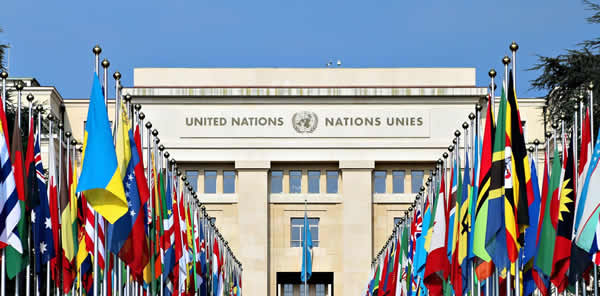
The Security Council on 2 January welcomed Denmark, Greece, Pakistan, Panama, and Somalia as the five newly elected non-permanent members for the 2025–2026 term.
Speaking at the flag installation ceremony for the newly elected Members, Denmark’s Ambassador Christina Markus highlighted the pressing challenges of today’s world. She pointed to ongoing conflicts, climate disasters, and humanitarian crises as evidence of profound global uncertainty. “The road ahead is demanding,” she remarked, “but our unwavering commitment is crucial to addressing these challenges effectively.”
Greece’s Ambassador Evangelos Sekeris said his country “looks forward to acting as a stabilising factor, serving as a bridge between the north of the south, the east and the west, while contributing to restoring the true meaning of the principle of the peaceful resolution of disputes.”
Pakistan’s Ambassador Asim Iftikhar Ahmad said, “cooperative multilateralism with the UN at its core is the best way of tackling the multifaceted challenges of today,” and stressed that “we need to earnestly address the root causes of long-outstanding as well as new conflicts, prioritise dialogue and diplomacy, and support confidence building at regional and global levels to reduce tensions, to reverse the arms race and enable an environment conducive for peace, stability and development.”
Panama’s Ambassador Eloy Alfaro de Alba said, “the Security Council played a crucial role in our national history when it held a formal meeting for the second time out of its headquarters in Panama City in 1973, under the able stewardship of our then ambassador to the United Nations, Aquilino Boyd.”
Somalia’s Ambassador Abukar Dahir Osman for his part said, “as a proud member State of African Union, the Arab League and Organisation of Islamic Cooperation, we are profoundly conscious of the sacred trust placed in our nation and the weight of responsibility that accompany this mandate.”
The five newly elected countries will join Algeria, Guyana, the Republic of Korea, Sierra Leone, and Slovenia as non-permanent members of the Council.
Source: africanews.com























